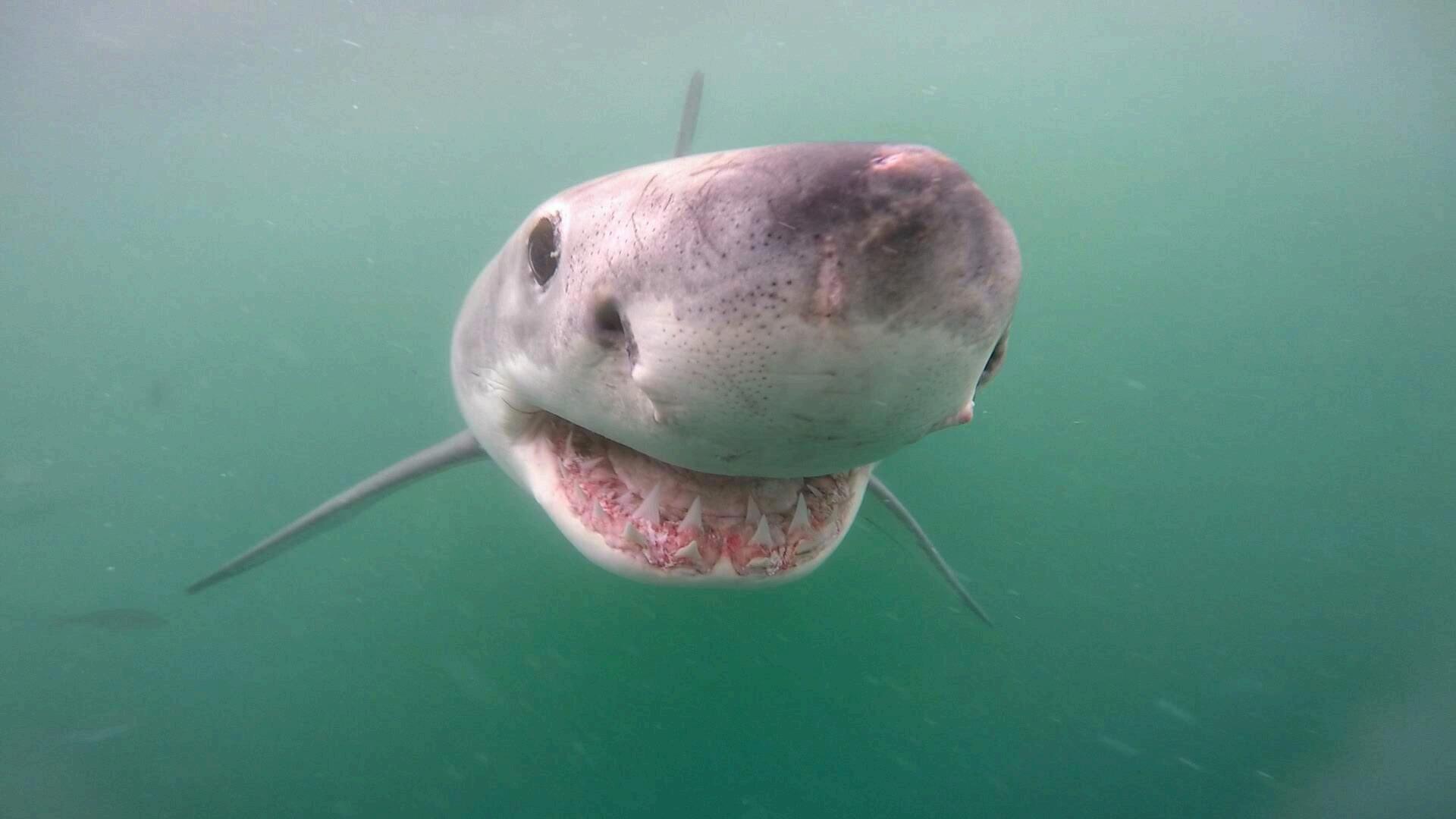
5 minute read
DON’T LET ME BE MISUNDERSTOOD
Text By Esther Jacobs, Earth Legacy Foundation, Mossel Bay
As a scuba diver, whether you like them or not, you should always want to defend the ocean’s most misunderstood predator.
I’ve always believed the ocean has a way of humbling us. As scuba divers, we’ve experienced the silence beneath the waves, the grace of a passing ray, the pulse of a living reef. But there’s one moment that has the power to make even the most seasoned diver pause in awe… a shark gliding past.
Yet, for many, that awe is still tangled with fear or misunderstanding. And that’s a worry.
My Distressing Shark Encounter
It’s a calm afternoon on the coast of Mossel Bay, the kind of day where the ocean breeze carries salt and serenity in equal measure. I was walking the shoreline, enjoying a rare moment of stillness, when that peace was shattered by the sound of shouting. As I turned a corner, I found myself in a heated confrontation. One I hadn’t planned, but one I couldn’t walk away from.
Two anglers had caught a hammerhead shark from the beach. My heart dropped the moment I saw it. Hammerhead sharks (Sphyrna spp.) are especially prone to stress, their physiology leaving them vulnerable to exhaustion, shock, and even death from the sheer trauma of being caught and mishandled. A study published by the University of Miami found that capture-related stress in hammerheads results in significantly elevated blood lactate levels, comparable to what humans experience during extreme physical exertion.
Unlike other species, many hammerheads suffer delayed mortality, dying after being released, even if they initially swim away.
These iconic sharks are on the International Union for Conservation of Nature (IUCN) Red List, with species like the smooth hammerhead (Sphyrna zygaena) listed as Vulnerable, and others like the scalloped hammerhead (Sphyrna lewini) as Critically Endangered.
Despite this, what followed was anything but careful or respectful. The shark, clearly stressed, was dragged across the rocks. One of the men stomped on its snout. Another kept the animal out of the water for minutes to take several ‘selfies’ with it.
As a conservationist and marine animal responder, I’ve seen my fair share of disturbing interactions between people and ocean wildlife, but something about this moment hit differently. I knew, with heartbreaking certainty, that the shark’s odds of survival had plummeted, even if it had been “released.” And it shook me. Because if even we, the ocean lovers, stand by silently, how can we expect change?
Launching a Petition for Protection
My encounter that day led to action. Through Earth Legacy Foundation, I launched a petition calling for the Department of Forestry, Fisheries and the Environment (DFFE) to urgently remove all Critically Endangered and Endangered species from South Africa’s permitted catch list, both commercial and recreational. The petition also calls for the implementation of a zero bag limit and an enforceable, ethical handling policy for protected species.
It’s time to end the grey area where "accidental" catches become photo ops, and endangered species become collateral damage. You can add your voice to the call for change by signing the petition now. Click here!
Sharks For Ocean Health
Marine biologist and explorer Dr. Sylvia Earle said it best:
“Sharks are beautiful animals, and if you're lucky enough to see lots of them, that means that you're in a healthy ocean. You should be afraid if you are in the ocean and don't see sharks.”
It’s true. Sharks are apex predators, ecosystem engineers, and key indicators of ocean health. Without them, the entire balance of marine life begins to unravel prey populations explode, coral reefs suffer, biodiversity crashes.
As divers, we are the ocean’s frontline ambassadors. We see the beauty, complexity, and fragility of marine ecosystems in ways few others do. When we surface, we bring those stories with us. But we also carry a responsibility to act. Healthy reefs thrive due to sharks, so let’s make sure they always do.
You Don’t Have to Love Sharks — But You Should Respect Them
Not everyone has to be a shark fanatic. But every diver should understand the role sharks play and how vital they are to the marine ecosystems we cherish. One-third of all sharks, rays, and chimaeras are threatened with extinction, according to the IUCN Shark Specialist Group. Without top predators like hammerheads, marine ecosystems begin to unravel. It’s a proven fact that trophic cascades wipe out biodiversity, impact fisheries, and weaken ocean resilience.
So yes, you don’t have to love sharks, but you should cherish them and recognise that protecting sharks means protecting our reefs, our fish, and our future dive sites.
But it’s not just about the science. It’s about values. About ethics. About what kind of legacy we want to leave behind.
What Can You Do?
Educate yourself and others — challenge shark myths and fear-mongering.
Use your platform — even a simple social media post can shift perceptions.
Support stronger protections — sign petitions, attend hearings, and write to lawmakers.
Lead by example — refuse to support operations that mistreat sharks for tourism.
Let’s make it our mission to ensure the next generation of divers still has sharks to dive with.
We need bold action. We need science-backed policies. And we need each other, the global dive community, to rise up, speak out, and defend the ocean’s misunderstood guardians.
Sharks don’t need us to love them. But they desperately need us to protect them.











